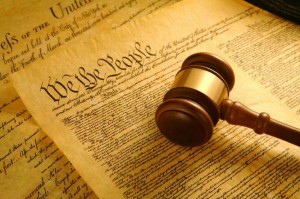Here’s the latest reader question, along with my reply!
Steve writes: We are both good earnest libertarians so automatically do the same thing -which is attack bad policy for statism. I suggest that given America’s constitutional arrangement you stress the federal government’s dearth of constitutional jurisdiction in these matters. This method assures you the moral high ground, a spot first cleared in 1790 by Jefferson re Hamilton’s vile central bank. In the 1980s as a John Birch Society member I was suggested this by an older member citing the high likelihood a power undelegated to the federal government would balk natural right. Your contributions brilliantly illustrate the inevitable practical consequences of dogmatic error. Reality can not be successfully defied no matter the end sought; you explain this clearly and engagingly. For that I am very grateful.
My reply: Your point is correct, of course. I attack the principle – the notion that “the government” (at any level) has any legitimate business involving itself in such matters as the fuel efficiency of motor vehicles, which is properly a question to be answered by the marketplace. If people desire fuel efficiency, the market will deliver it – just as it provides good coffee.
While it’s important to note the violations of federalism/constitutional authority, doing so is, in my opinion, only to partially answer the question. Or – more precisely – not to address the question properly. The question is one of rightful authority – not the level at which it is exerted. The states and counties have no more right to involve themselves in the question of fuel efficiency than the federal government and – in my opinion – by not addressing that point, one leaves unaddressed the question of the fundamental legitimacy of the thing.
I try to make the point that “the government” isn’t some sort of entity but rather a mere rhetorical device that makes it seem so. In fact, “the government” is just other people; these people have titles and power – but how can they have rights superior to those of any other person? Obviously – logically – what is wrong when done by any man is also wrong when done by other men – no matter their title. If I lack the rightful power to force you to buy a car that gets “x” MPG – or that has ten air bags – then how is it that “the government” has this power, rightfully?
The answer, of course, is that cannot rightfully have this power – whether we are talking about the federal or state government.
Thanks very much for the kind words!
. . .
Got a question about cars, Libertarian politics – or anything else? Click on the “ask Eric” link and send ’em in!
If you like what you’ve found here please consider supporting EPautos.
We depend on you to keep the wheels turning!
Our donate button is here.
If you prefer not to use PayPal, our mailing address is:
EPautos
721 Hummingbird Lane SE
Copper Hill, VA 24079
PS: Get an EPautos magnet or sticker or coaster in return for a $20 or more one-time donation or a $10 or more monthly recurring donation. (Please be sure to tell us you want a magnet or sticker or coaster – and also, provide an address, so we know where to mail the thing!)
If you’d like an ear tag – custom made! – just ask and it will be delivered.
My latest eBook is also available for your favorite price – free! Click here. If that fails, email me at [email protected] and I will send you a copy directly!











My perspective is this: governments are granted certain PRIVILEGES by their constitutions. They have the power to defend my property and life, just as I do. They cannot grant me a driving privilege, because I own my vehicle and I own part of the road. Government doesn’t have the privilege of owning or using any weapon, that I don’t have the right to. And government sure as heck isn’t an interested party in any legal proceeding, so crimes without a victim, arent.
Most small minds don’t grok what I’m saying.
I’ll also sometimes cite the Constitution, but not because I think that a piece of paper is the source of any liberties, or conversely that it legitimizes certain men to rule others and trample liberties (Such as by establishment of taxes)- but rather I do so to illustrate that the very government which claims it’s authority from that document, doesn’t even abide by it’s precepts. Therefore, even if one were to believe that a mere document could obligate us to relinquish certain basic natural rights and or delegate them to others via a political process, 99.9% of what the government does would still be illegitimate if for no other reason than the fact that the government does not even abide by the terms of the very contract which authorizes it’s existence and is supposed to be the premise for it’s actions.